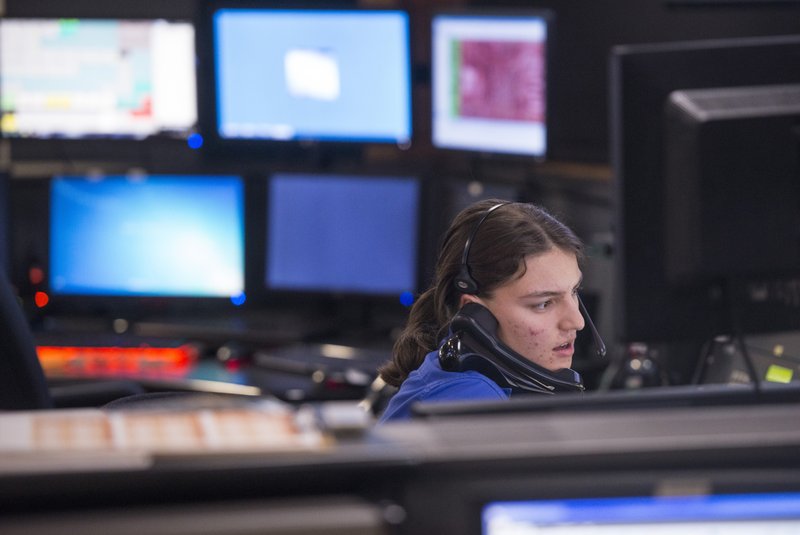ROGERS -- County governments in Arkansas will push to at least double the 65-cent-per-month fee on cellphones for 911 emergency response service, legislators were told Thursday.
"This will be the county judges' top priority in the next legislative session," Josh Curtis, governmental affairs director of the Association of Arkansas Counties, told a joint meeting of four legislative committees during the association's annual conference.
The expected $20 million-a-year increase is just one of the changes county governments will seek, Curtis and a panel of 911 specialists informed the joint meeting of the House and Senate State Agencies committees and City, County and Local Affairs committees.
Supporters of the fee increase will also seek to have one state board, probably the existing Emergency Telephone Services Board, granted the authority to coordinate the state's 911 call centers and consolidate some of the 127 existing ones, lawmakers were told.
"The system today is a legacy of the landline telephone system of the 1970s," said Renee Hoover, administrator of the Arkansas Emergency Telephone Services Board. "We've made wireless phones fit into it as best we could."
Legislators also heard from Stacey Hunt, 911 coordinator for the state Department of Emergency Management, and Brianna Fields, deputy director of Benton County's Office of Emergency Management.
The system as it exists tells dispatchers the number of a cellphone caller, a very rough and sometimes inaccurate general location and whatever the caller can convey by voice, the panel told lawmakers. The system is inadequate and also underfunded by about $20 million a year, they said.
The state's 911 centers handle more than 2.3 million calls a year and nine out of 10 of those are made by cellphone, the emergency experts told lawmakers. The fee structure for the system was set up to be supported by charges to land-line users and has not covered costs for years, they said.
None of the legislators attending this year's conference at the John Q. Hammons Convention Center argued with the need for revamping the system, but some asked if federal money is available. A statewide, coordinated approach would make getting federal money easier, the experts replied, but nothing is available to make up the $20 million shortfall every year.
Most untapped federal funding available is for system upgrades, not day-to-day operations, they said.
The 911 panel participants started their presentation by playing a recording of an actual 911 call in which the caller gave her address while her husband lay where he fell, apparently from a heart attack. The recording replayed her second call after her husband stopped breathing. The dispatcher said an emergency response team had been sent, but was having trouble finding her. The panicked caller then attempted to give precise directions.
The room was silent.
Little Rock's 911 center reported a staff shortage of 20 positions on a 66-person facility last year that sometimes left the center unable to answer calls promptly. A check of others cities, including Fayetteville, Fort Smith and Jonesboro, also found staff shortages.
County and city emergency responders decide what 911 system to use under current law, with some operating their own and others joining. The result is a mosaic of systems. For instance, Craighead County's only center handles more than 70,000 calls a year. Lonoke County, meanwhile, has six centers. Three of them take fewer than 3,000 calls a year, according to figures presented at the meeting.
"When our 911 system first started, a typical call was someone who had a wreck and somebody called on a land-line from the nearest house," Curtis told the committees. "Now, every time we have a fender-bender on I-30, everybody who saw it calls 911 on their cellphone."
The calls swamp the antiquated 911 system and can bury real emergencies, he said.
County officials also raised the 911 issue Thursday morning to Gov. Asa Hutchinson. He asked county officials for their support in getting both a highway program and a state government reorganization through the next legislative session -- if he is re-elected.
After his remarks, the governor heard a request for more and stable funding for the 911 system. He said he recognized the situation, but made no commitment to support as much of a fee increase as the county officials are requesting.
On highways, there is not enough support in the Legislature to impose new taxes to address an estimated $300 million a year more in annual funding for highway needs, Hutchinson told the crowd of about 700.
He opposes the idea of transferring sales tax revenue from auto-related purchases such as tires and batteries from the general fund to highways, the governor said. The best option for funding a highway proposal would be for the Legislature to craft a proposal and put it before the voters in an election, Hutchinson said.
The governor also said he needs county officials to support a reorganization plan. He has 42 cabinet-level officials reporting directly to him, an unworkable arrangement, he said.
Hutchinson said he would work with the incoming secretary of state to get modern, secure voting machines for counties that need them. Secretary of State Mark Martin is term-limited.
"Because of Russian meddling that is undisputed by our intelligence agencies, the state needs to look at it from a security standpoint," Hutchinson said.
A Section on 08/10/2018
